Abstract
Two experiments were conducted to increase the initiations and duration of social interactions between autistic and nonhandicapped youths. Experiment 1 taught two autistic youths to initiate and elaborate social interactions with three age-appropriate and commonly used leisure objects; a radio, a video game, and gum. The students were first taught to use the objects and subsequently instructed in the related social skills. The youths generalized these social responses to other non-handicapped peers in the same leisure setting. A second experiment trained a third autistic youth to emit similar social leisure skills. The use of the leisure objects and the related social skills were taught at the same time. The autistic youth learned these skills and generalized them to other handicapped peers in the same leisure setting. The importance of teaching generalized social responding in particular subenvironments was emphasized.
Full text
PDF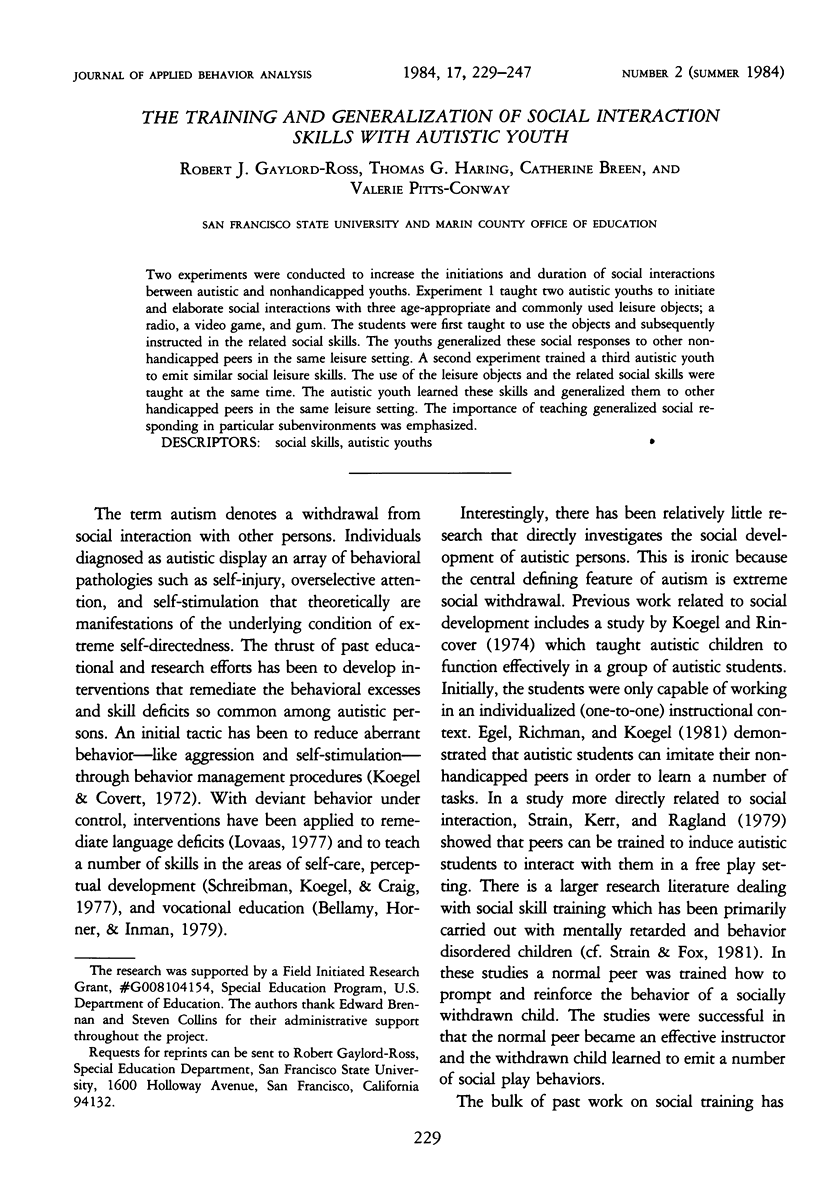
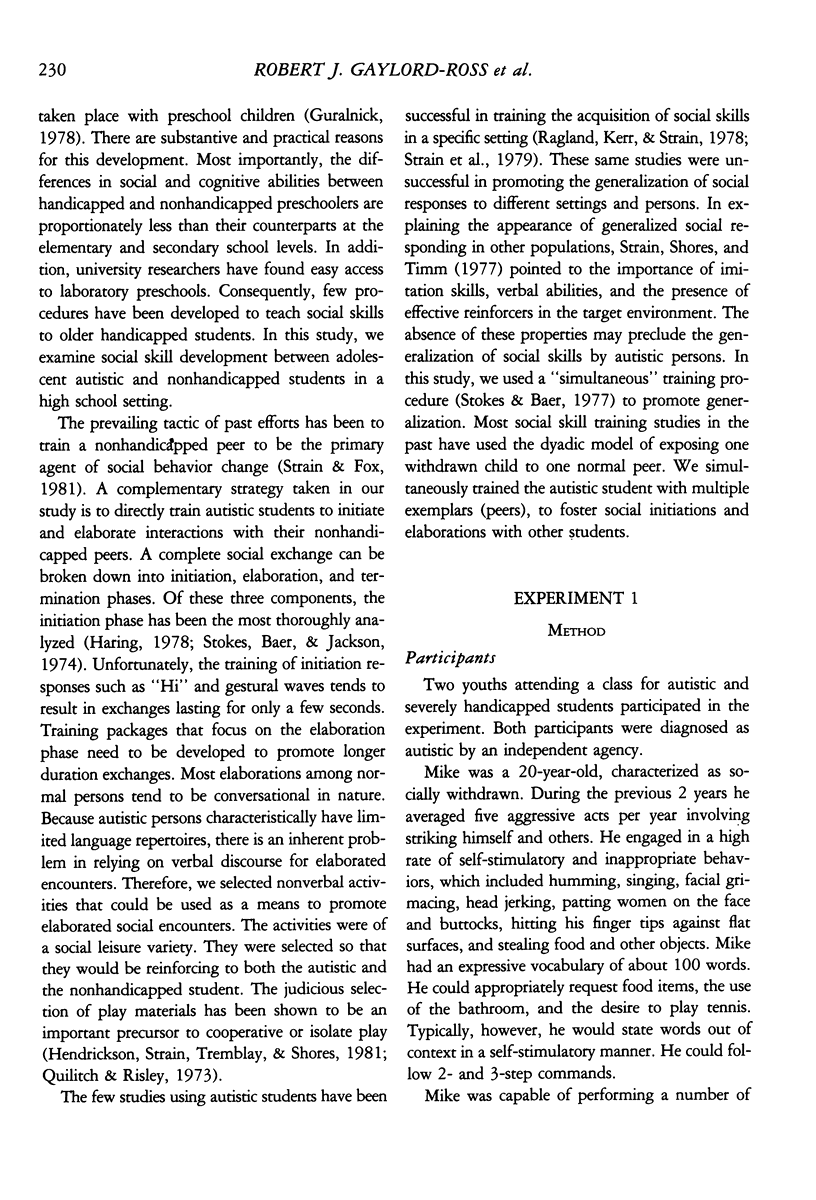
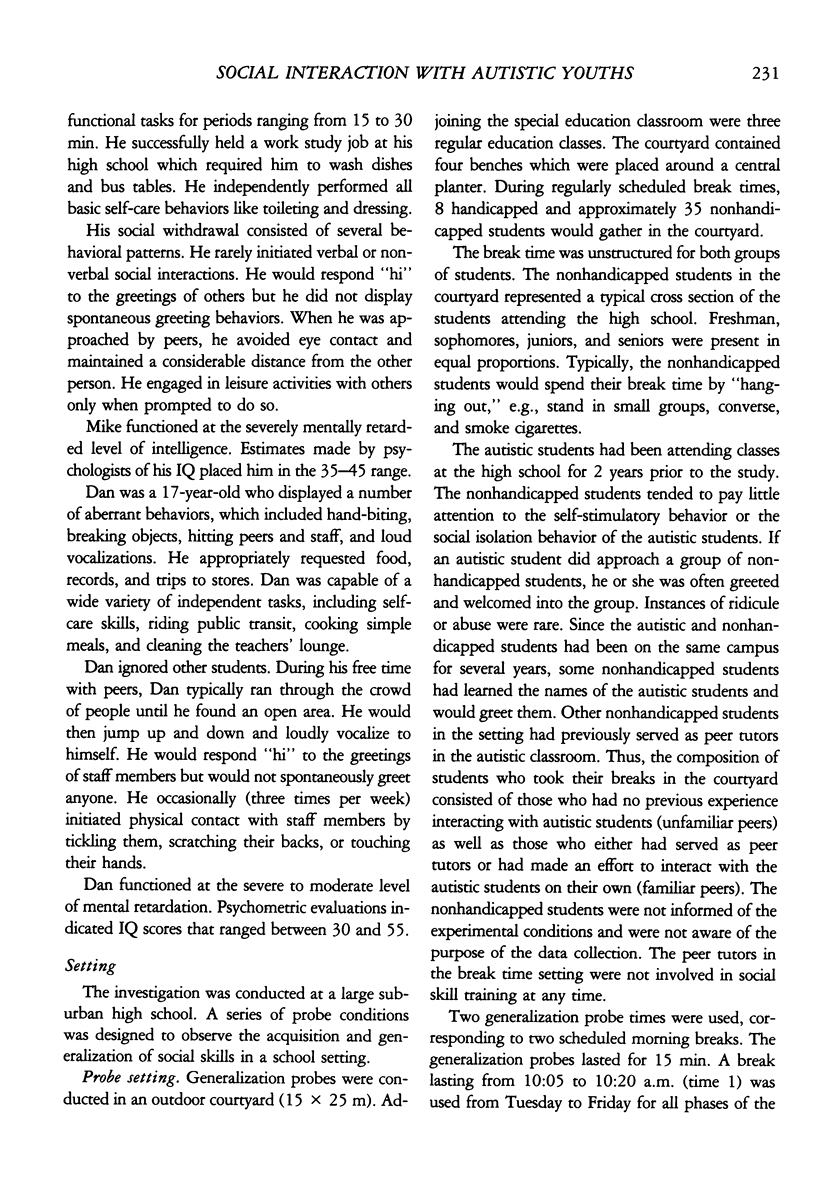
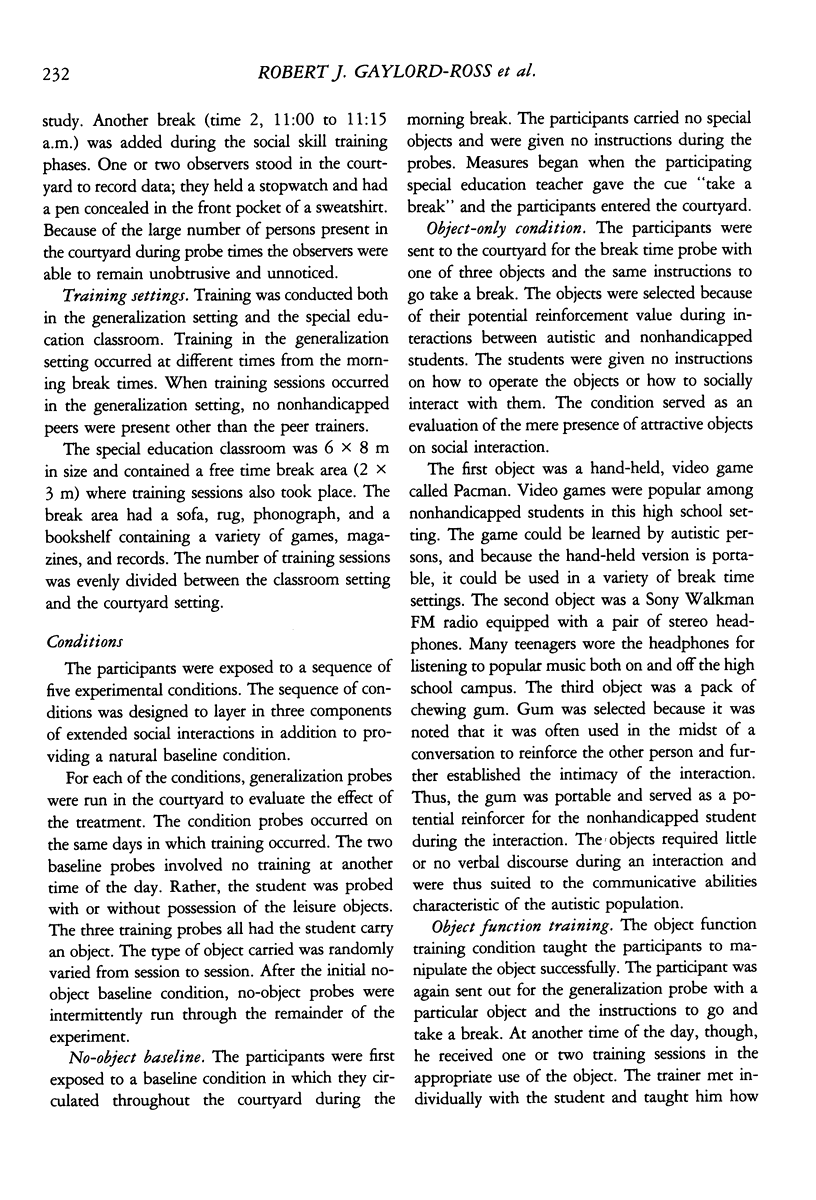
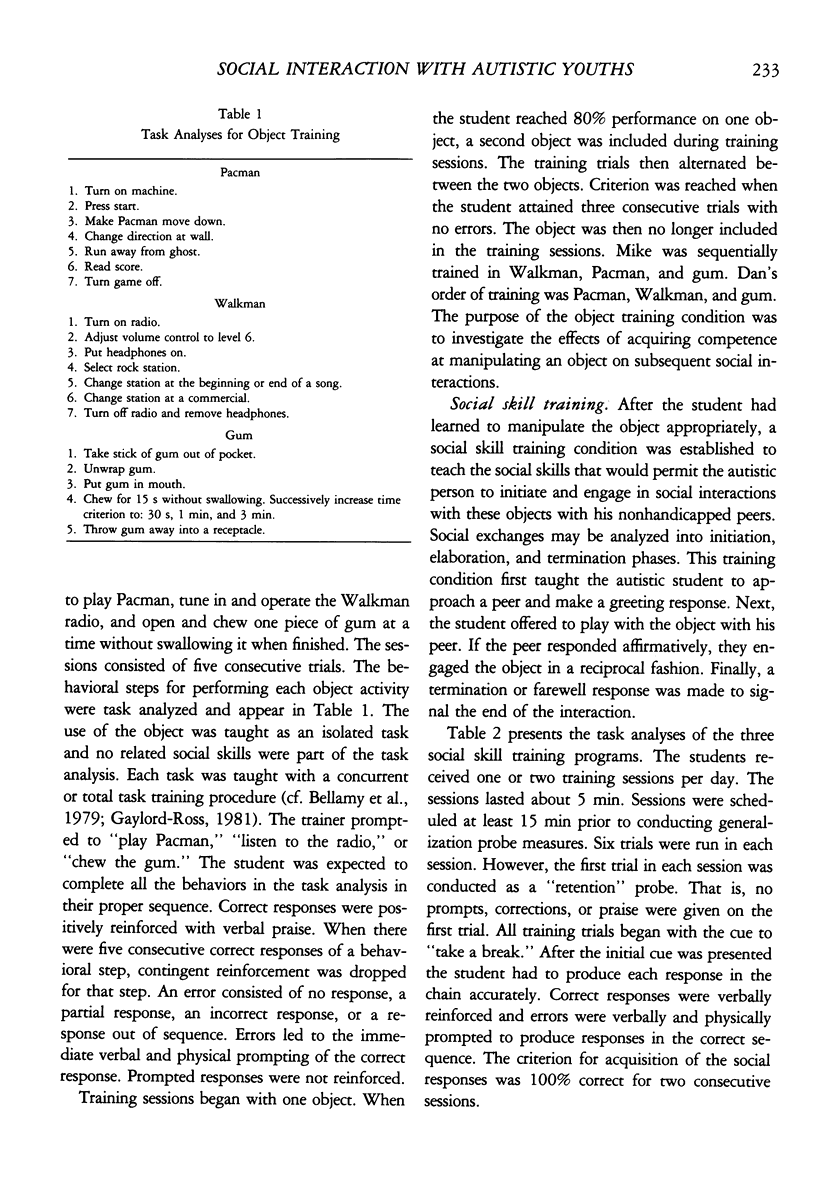
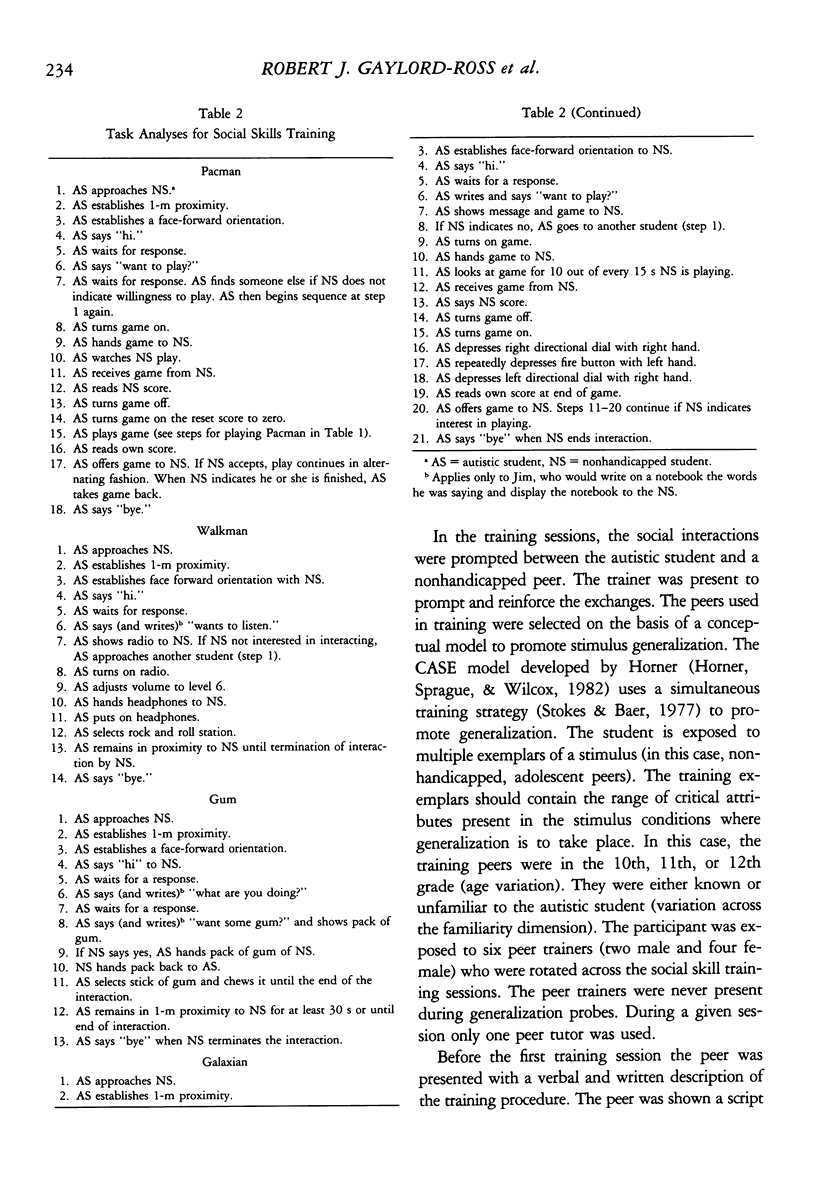
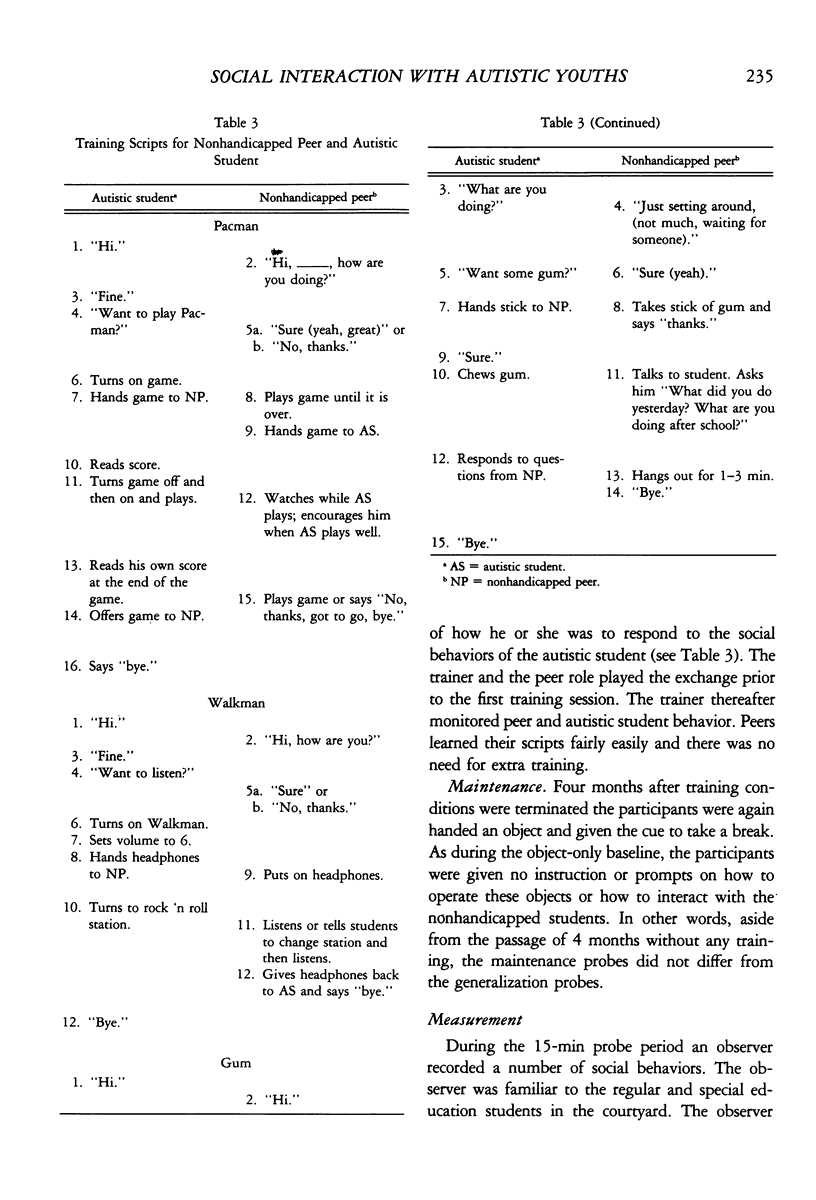
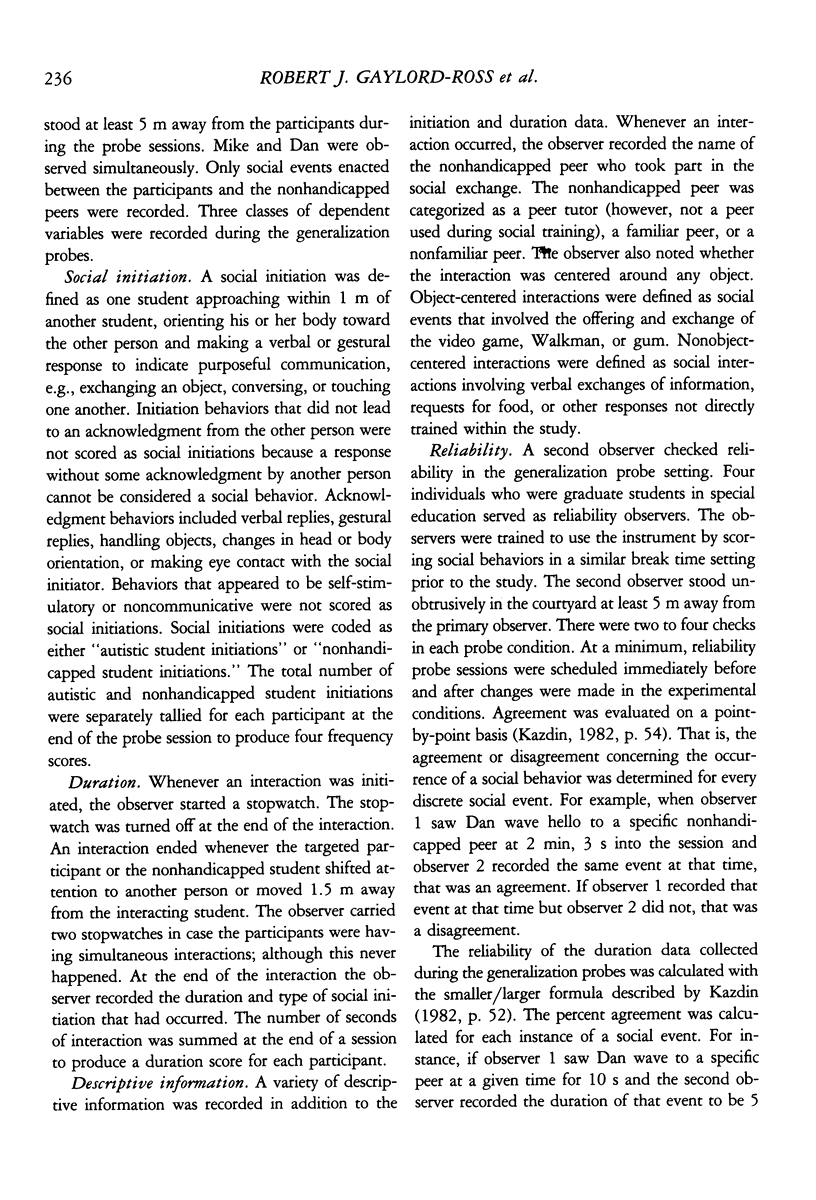
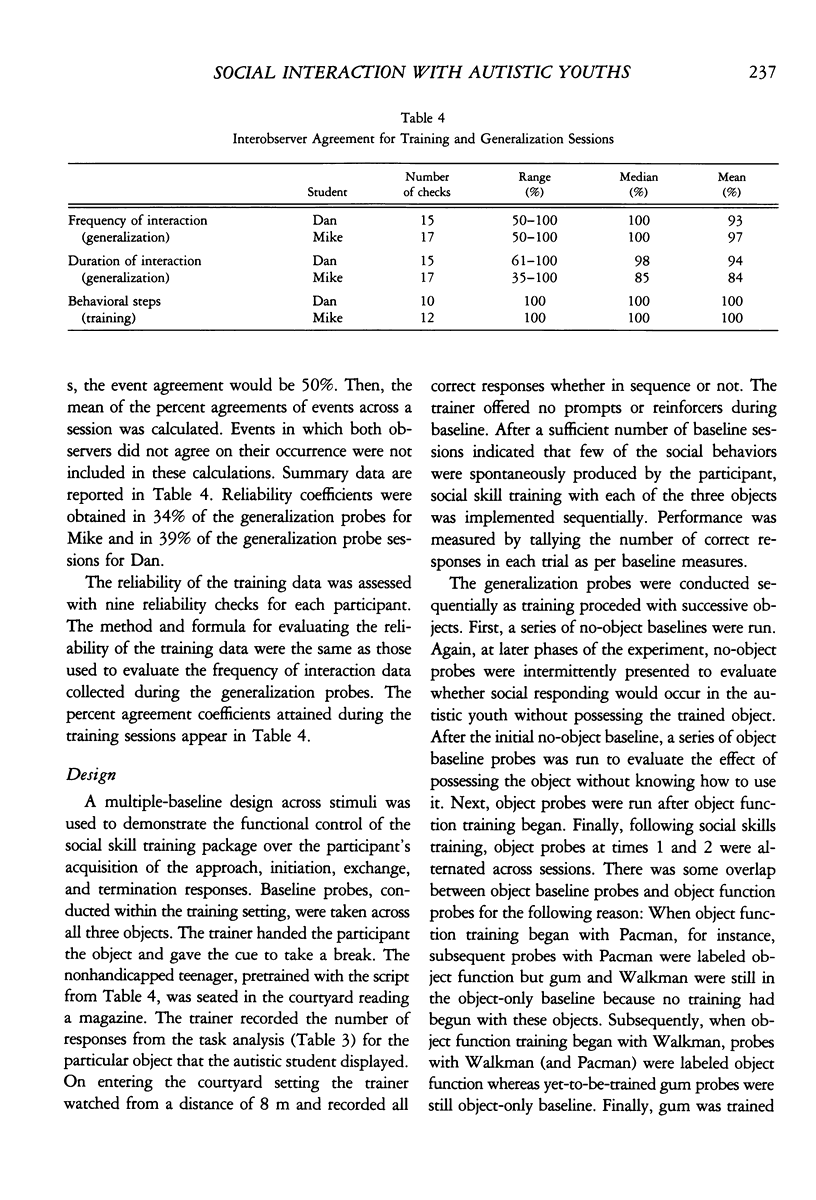
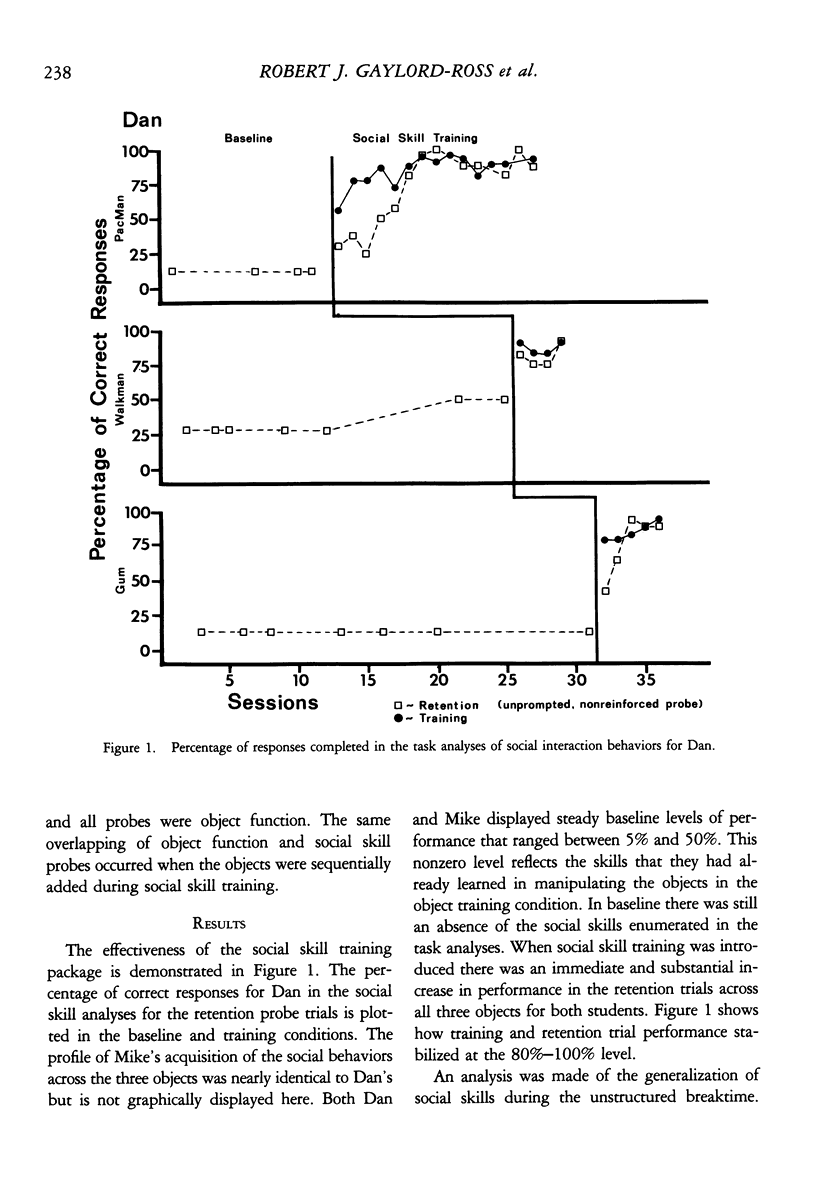
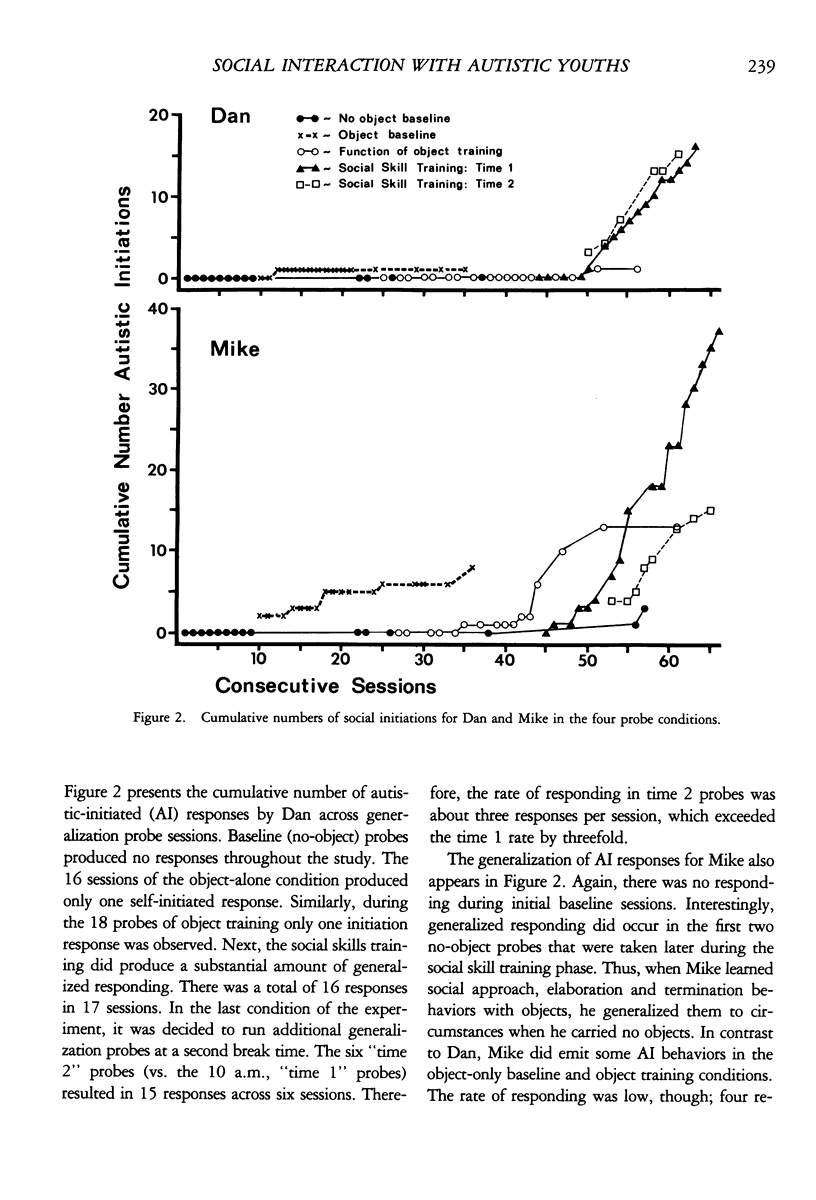
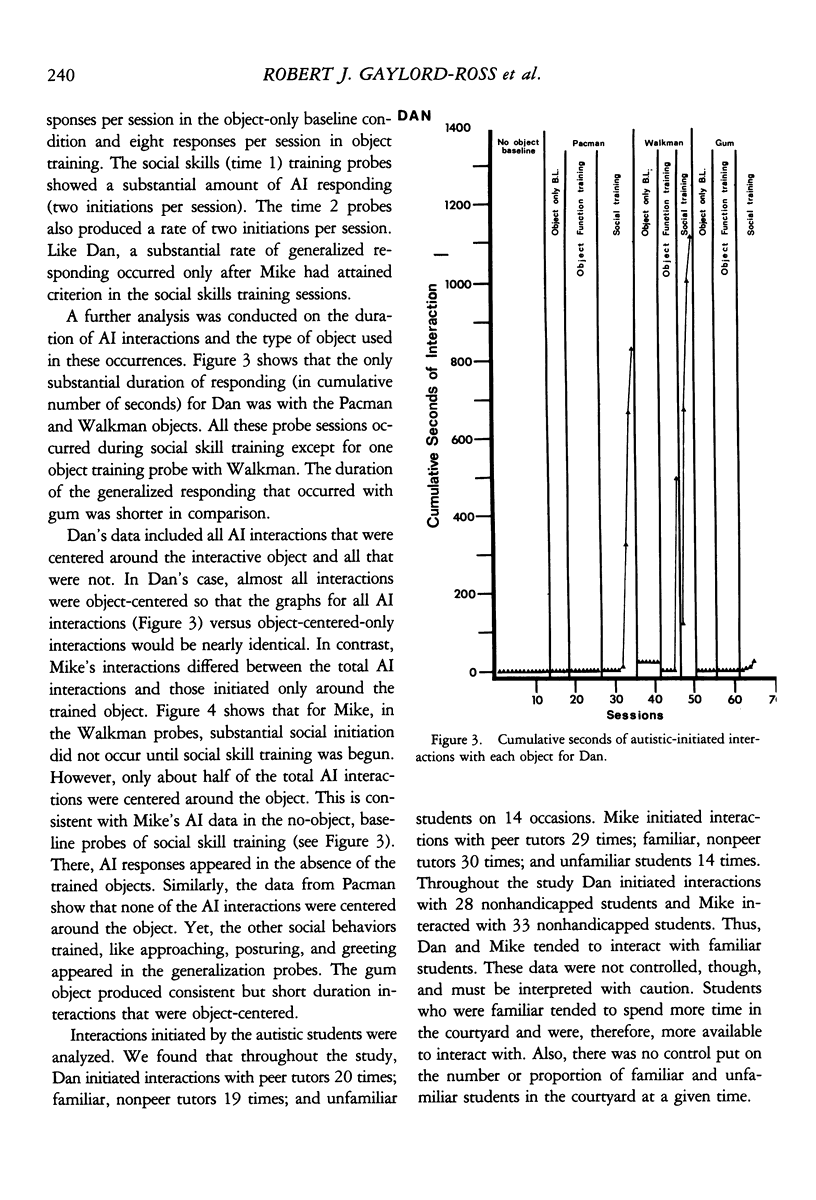
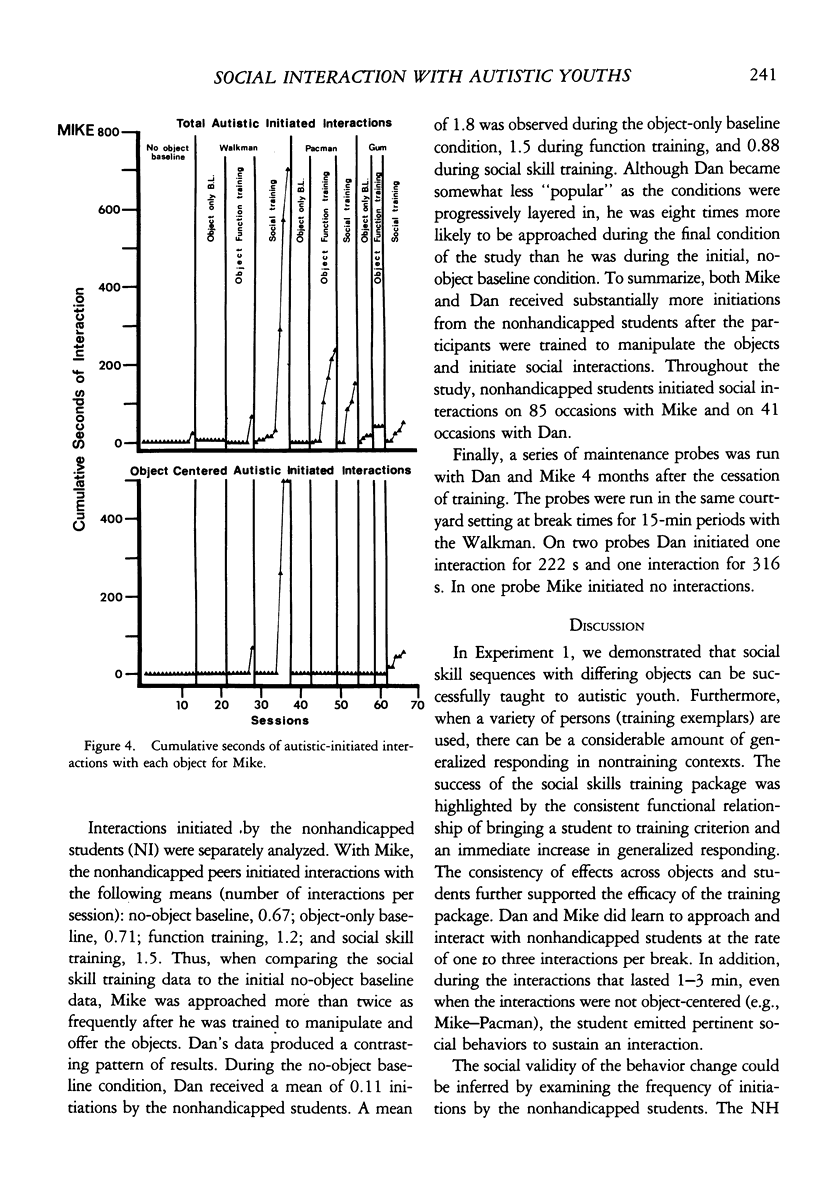
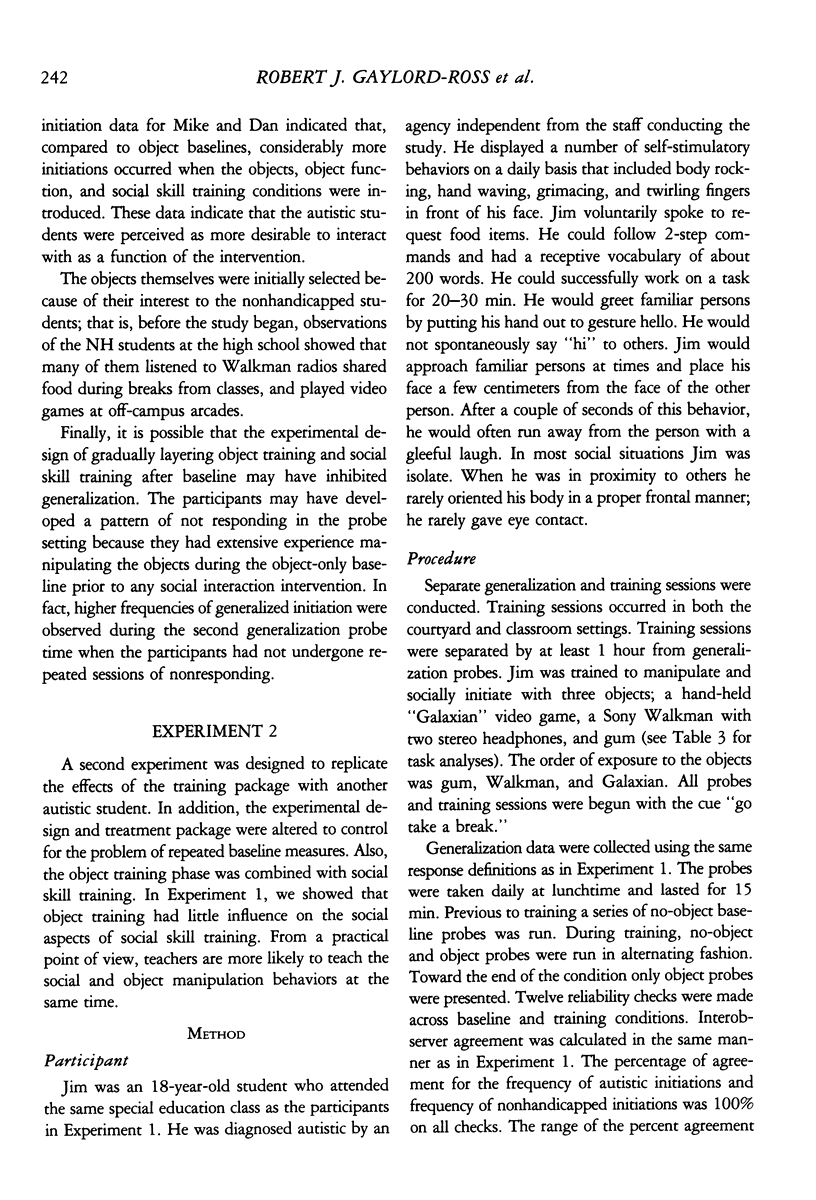
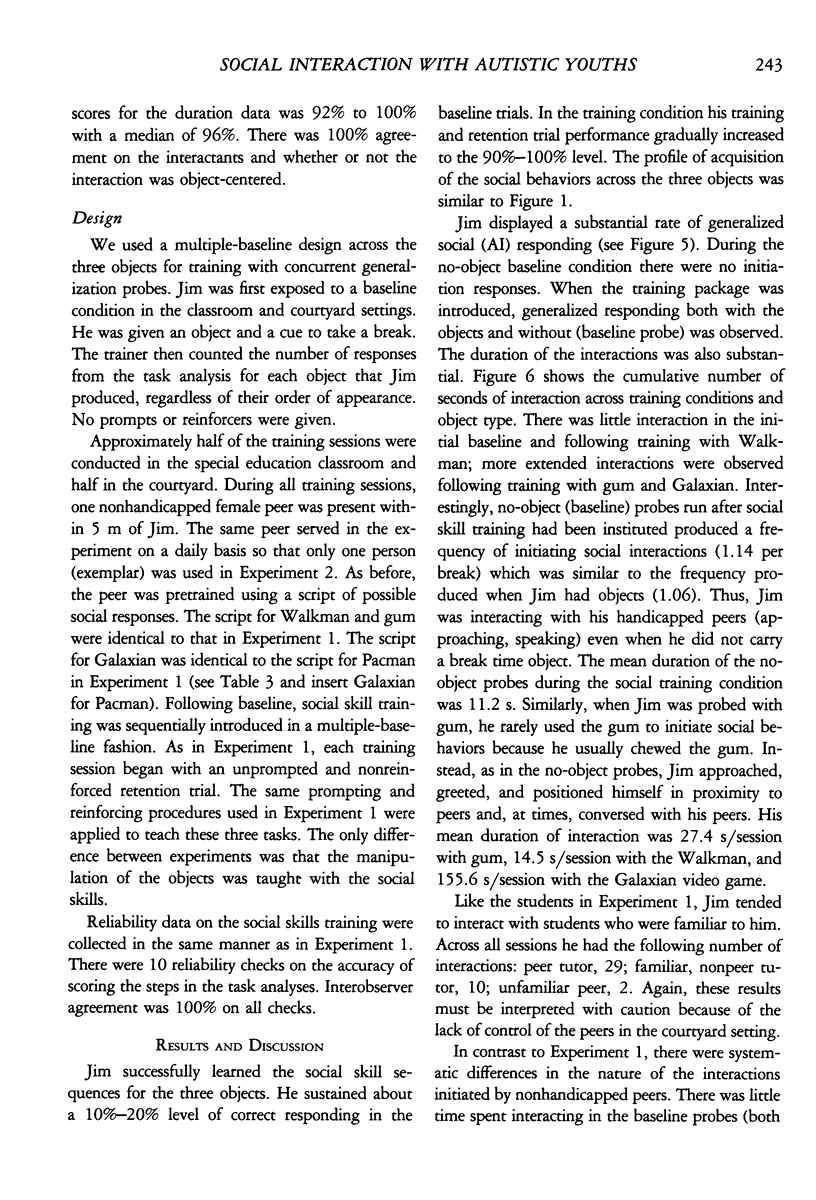
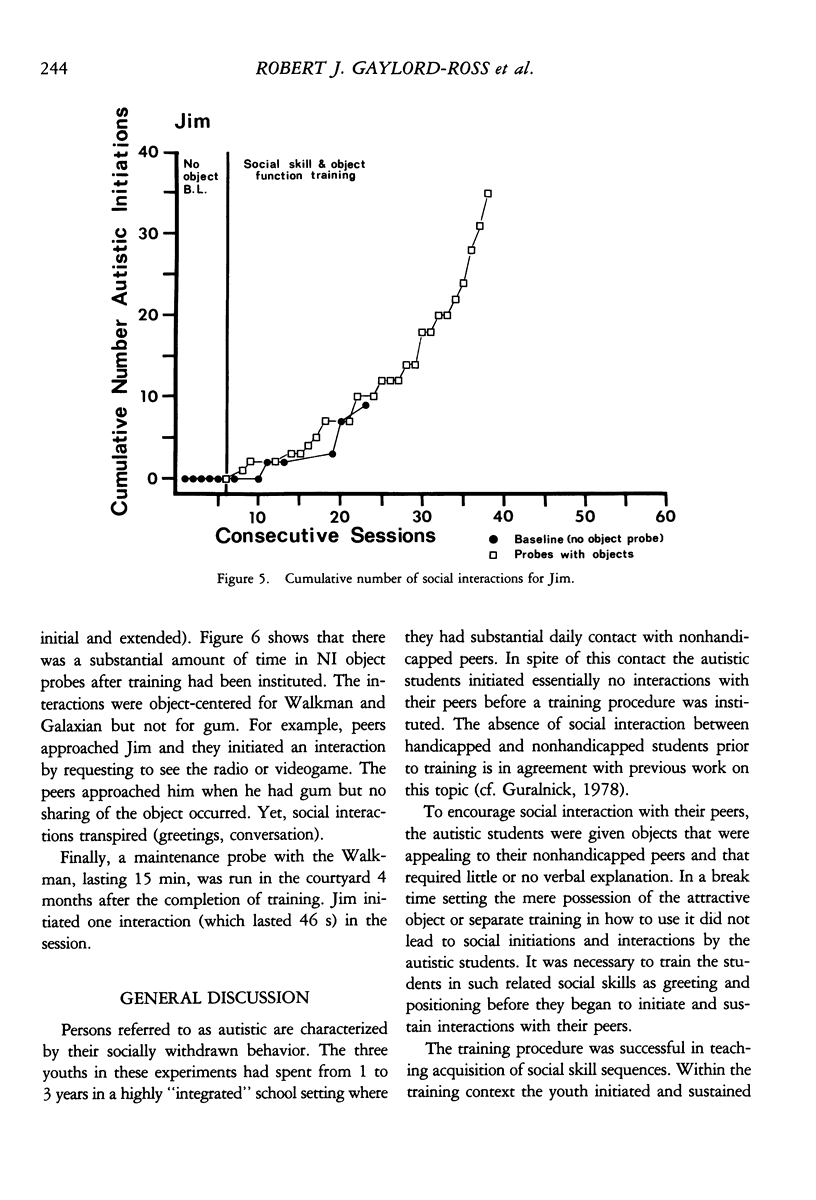
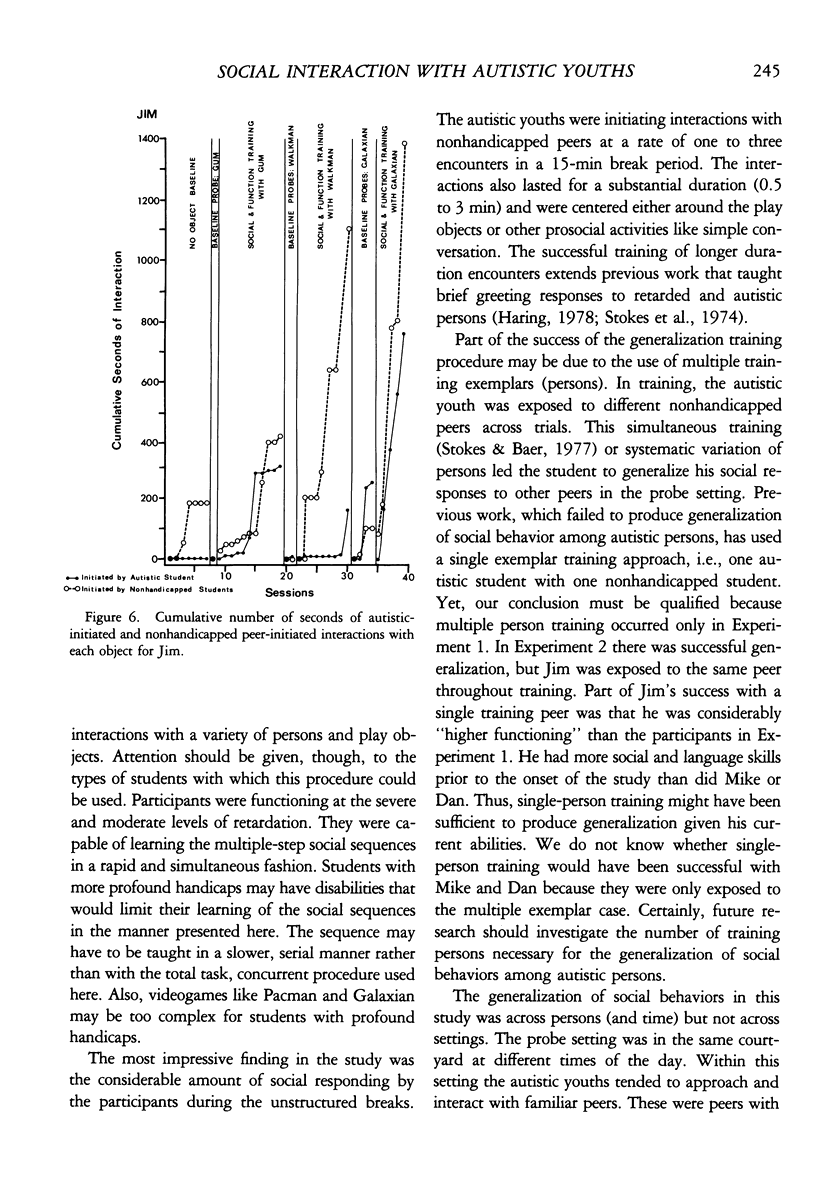
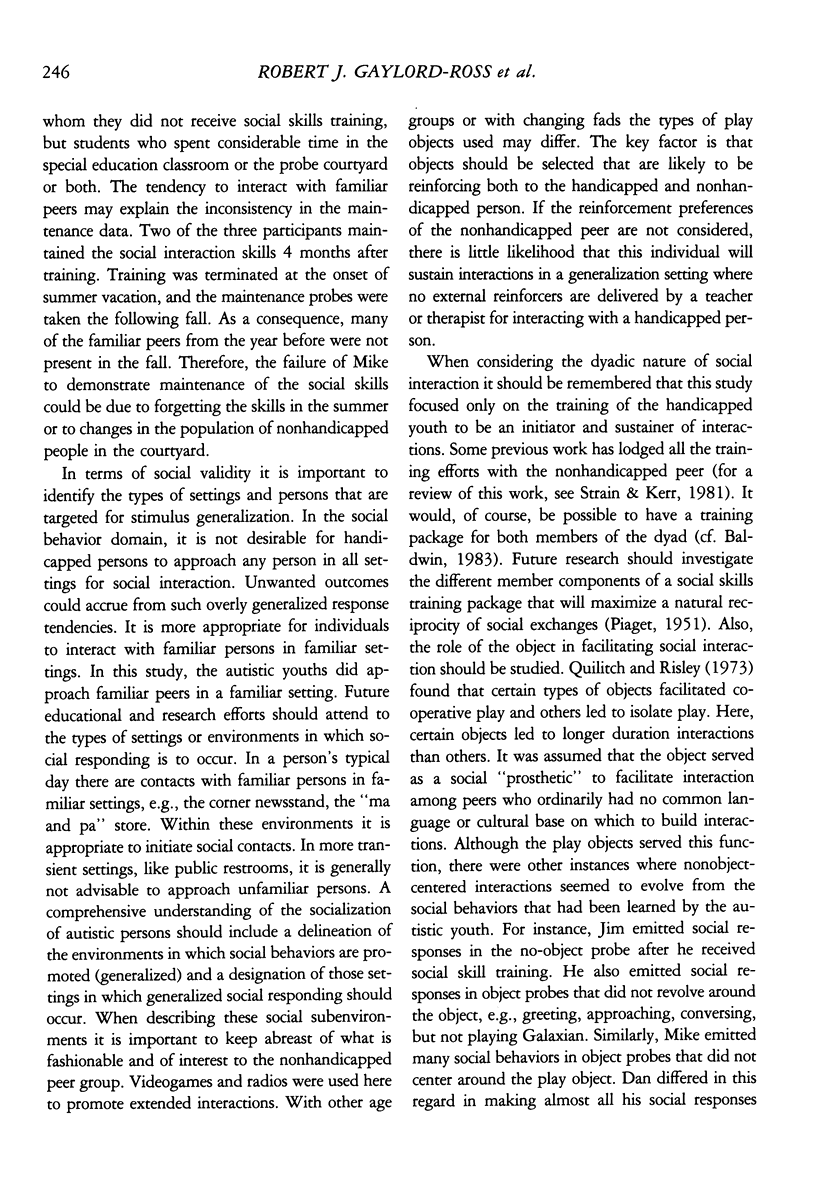
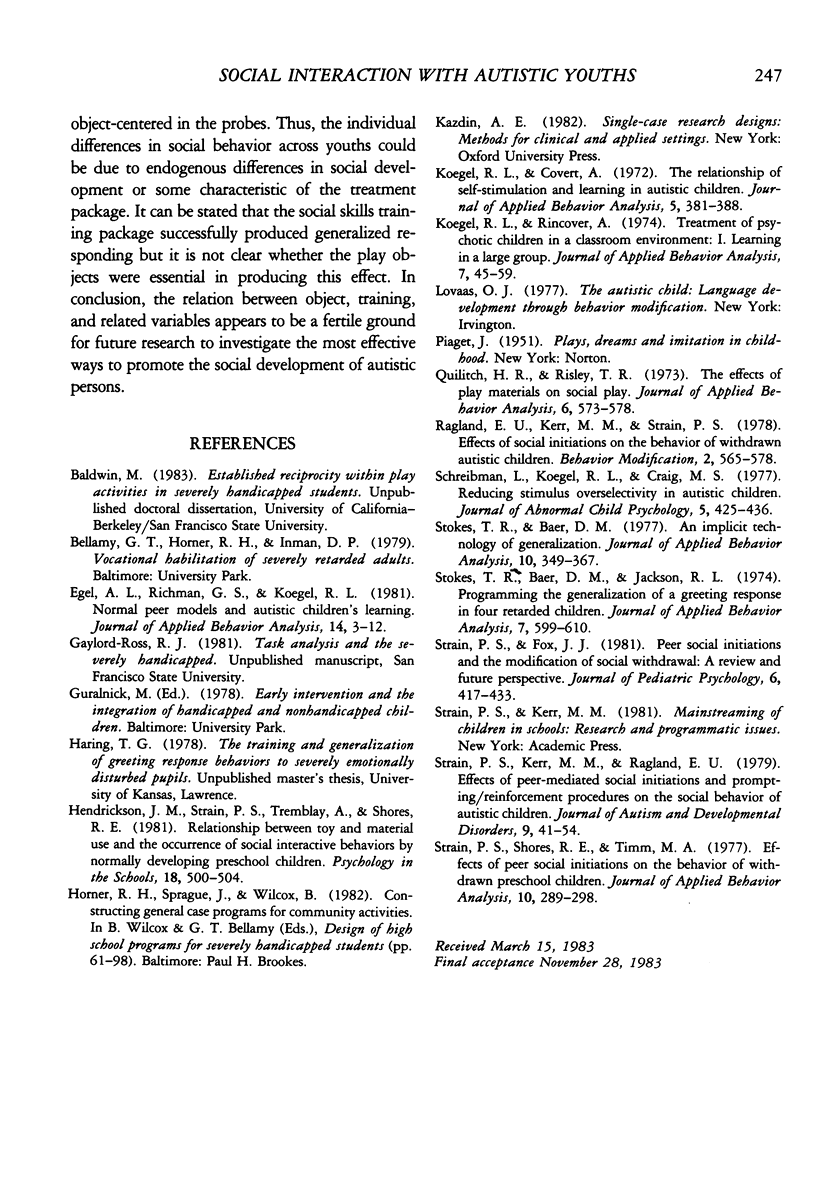
Selected References
These references are in PubMed. This may not be the complete list of references from this article.
- Egel A. L., Richman G. S., Koegel R. L. Normal peer models and autistic children's learning. J Appl Behav Anal. 1981 Spring;14(1):3–12. doi: 10.1901/jaba.1981.14-3. [DOI] [PMC free article] [PubMed] [Google Scholar]
- Koegel R. L., Covert A. The relationship of self-stimulation to learning in autistic children. J Appl Behav Anal. 1972 Winter;5(4):381–387. doi: 10.1901/jaba.1972.5-381. [DOI] [PMC free article] [PubMed] [Google Scholar]
- Koegel R. L., Rincover A. Treatment of psychotic children in a classroom environment: I. Learning in a large group. J Appl Behav Anal. 1974 Spring;7(1):45–59. doi: 10.1901/jaba.1974.7-45. [DOI] [PMC free article] [PubMed] [Google Scholar]
- Quilitch H. R., Risley T. R. The effects of play materials on social play. J Appl Behav Anal. 1973 Winter;6(4):573–578. doi: 10.1901/jaba.1973.6-573. [DOI] [PMC free article] [PubMed] [Google Scholar]
- Schreibman L., Koegel R. L., Craig M. S. Reducing stimulus overselectivity in autistic children. J Abnorm Child Psychol. 1977 Dec;5(4):425–436. doi: 10.1007/BF00915090. [DOI] [PubMed] [Google Scholar]
- Stokes T. F., Baer D. M. An implicit technology of generalization. J Appl Behav Anal. 1977 Summer;10(2):349–367. doi: 10.1901/jaba.1977.10-349. [DOI] [PMC free article] [PubMed] [Google Scholar]
- Stokes T. F., Baer D. M., Jackson R. L. Programming the generalization of a greeting response in four retarded children. J Appl Behav Anal. 1974 Winter;7(4):599–610. doi: 10.1901/jaba.1974.7-599. [DOI] [PMC free article] [PubMed] [Google Scholar]
- Strain P. S., Fox J. J. Peer social initiations and the modification of social withdrawal: a review and future perspective. J Pediatr Psychol. 1981 Dec;6(4):417–433. doi: 10.1093/jpepsy/6.4.417. [DOI] [PubMed] [Google Scholar]
- Strain P. S., Kerr M. M., Ragland E. U. Effects of peer-mediated social initiations and prompting/reinforcement procedures on the social behavior of autistic children. J Autism Dev Disord. 1979 Mar;9(1):41–54. doi: 10.1007/BF01531291. [DOI] [PubMed] [Google Scholar]
- Strain P. S., Shores R. E., Timm M. A. Effects of peer social initiations on the behavior of withdrawn preschool children. J Appl Behav Anal. 1977 Summer;10(2):289–298. doi: 10.1901/jaba.1977.10-289. [DOI] [PMC free article] [PubMed] [Google Scholar]


